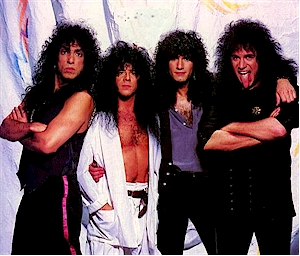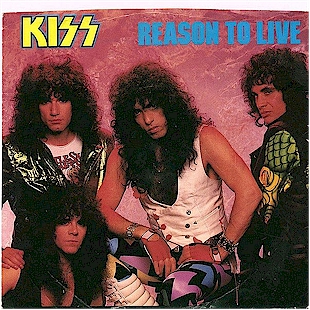 We hold these truths to be self-evident: all men and women are created equal, though those who order their booze from the top shelf behind the bar were apparently created more equal than others; that they are endowed by their creator with certain unalienable rights; that those with D-cups and trust funds share special endowments that have little to do with their creator; that Life, Liberty, and The Pursuit of Happiness were fine, though Neil Young and Duran Duran made better records, and TPOH hasn’t done much worth pursuing in the last 15 years or so.
We hold these truths to be self-evident: all men and women are created equal, though those who order their booze from the top shelf behind the bar were apparently created more equal than others; that they are endowed by their creator with certain unalienable rights; that those with D-cups and trust funds share special endowments that have little to do with their creator; that Life, Liberty, and The Pursuit of Happiness were fine, though Neil Young and Duran Duran made better records, and TPOH hasn’t done much worth pursuing in the last 15 years or so.
Also self-evident is the truth that many, if not most, of the best-loved examples of the power ballad arts are about finding love, pursuing love, falling in love, yearning for love, coming off the road to rediscover one’s love, celebrating extended periods of love, waiting for love, fighting back the urge to fight the onset of love, pining for an unrequited love, apologizing for loving someone one shouldn’t love, looking for everlasting love, never saying goodbye to love, ending one’s search for love, or treading the mean streets and blind alleys where the currency of love changes hands. Very rarely do you find an example in the great power ballad pantheon that expresses the lack of need for love, where the singer loses love and says, “Meh. Don’t need it. Think I’ll just be moseying along.”
Leave it to those marketing trailblazers and soda pitchmen in KISS to take the lead in the “I ain’t cryin’ over lost love” theme in power balladry, with “Reason to Live.” Only, in 1987, when “Reason to Live” (and Crazy Nights, the album from whence it came) was released, the band wasn’t leading in much of anything, except in the category of old rock bands making lite metal records in the hope of getting a hit. The poofy hair, the ridiculous outfits, the performance videos that showed them having a rockin’ good time on stage—KISS did all that in the Eighties, making a series of passable LPs and a handful of smokin’ singles (“Lick It Up,” “Heaven’s on Fire,” “Tears Are Falling”) in the process.
“Reason to Live” should have been the biggest of those singles; it really seemed like a grand slam. Co-written by dreamboat frontman Paul Stanley and songwriter-for-hire Desmond Child, it was a keyboard-based ballad at a time when such things were beginning to fly up the charts. It had a WEE-diddle-diddle gee-tar solo, which gave the gents in the audience cover, were they caught listening to it (“Man, I’m just waiting for the solo—it’s bad-ass!”). And it featured the voice of said dreamboat frontman Paul Stanley—a man who had been moistening panties and coaxing them off their owners for 15 years at that point.
The lyrics Stanley wrote, though, were a cut above the standard hair band fare of the day. The protagonist finds himself alone—”All I hear is the sound of a broken heart”—but is determined to keep positive in the midst of a heartbreaking situation. In fact, he’s willed himself well again, done it all by himself, and in doing so has led to an epiphany of sorts:
Now the hurting’s through, and a new day starts
And I feel a change in my life,
I sailed into dark and endless nights
And made it alive
“I sailed into dark and endless nights / And made it alive.” Doesn’t that seem hopeful for a situation—a hard breakup, a long series of lonely evenings, the prospect that that loneliness will be hanging around for a while—most find completely hopeless? There’s strength there—personal strength, plus a bit of self-realization that such a strength exists within him. It reminds me of how Stevie Ray Vaughn’s cover of Elmore James’ “The Sky Is Crying” resonated with me during one painful breakup. “I got a real bad feelin’ that my baby don’t love me no more” sounded positively heroic to me then. Sailing into dark and endless nights and making it through alive? Same deal.
Of course, the money is in the chorus:
Everybody’s got a reason to live
Everybody’s got a dream and a hunger inside
Everybody’s got a reason to live, but it can’t be your love
Strictly on a performance basis, that chorus is an awesome thing. Stanley plays with the upper register of his thick voice, adding a layer of drama, and a powerful combination of background voices pump it up even further. The drumming (courtesy the late, great Eric Carr) makes the melody seem that much more majestic—the cymbal shots and fills are precision-guided, for full dramatic effect.
The lyrics, though, are what really sell the thing—”Everybody’s got a reason to live, but it can’t be your love” hits home the idea that not only should you not let a breakup drown you, but you should not let relationships define you in the first place. Your partner can always leave you, but he/she can’t take away things that are inherently, self-evidently yours. Never let your reason to live be that other person; there’s too much at stake should you wake up one morning alone.
The second verse sees the protagonist recognizing how much he’s given away, and the message he’s received from himself as a result of that recognition:
Out of touch, with myself for so long,
Now a feelin’ so strong comin’ over me
Down the line, there’s a lesson I’ve learned
You can love and get burned, if it has to be
The lead-in to the chorus brings it all home:
And I see a change in my life,
and I’m not alone when I’m strong inside
“I’m not alone when I’m strong inside” takes earlier expressions of strength in self and amplifies them. It’s about self-sufficiency; finding strength in one’s own headspace starts with finding strength in one’s heart. While we’re certainly not impervious to the sudden absence of affection and companionship, such things are not the whole of our identities, our selves. If we’re fortunate enough to find them and hold onto them for a lifetime, so much the better, but they cannot be the foundation of who we are. Love should enhance our lives, not be the sole reason for them.
Pretty heady stuff for a KISS track, huh? A couple years after “Reason to Live,” they had success with another power ballad (“Forever”—more about that some other time), but not even that hit could touch the grandeur and confidence of this track, one of their finest moments in the Eighties.
That’s it for another year of Death by Power Ballad, my peeps. Enjoy your holidays and stop back over in January. Peace out.




Comments